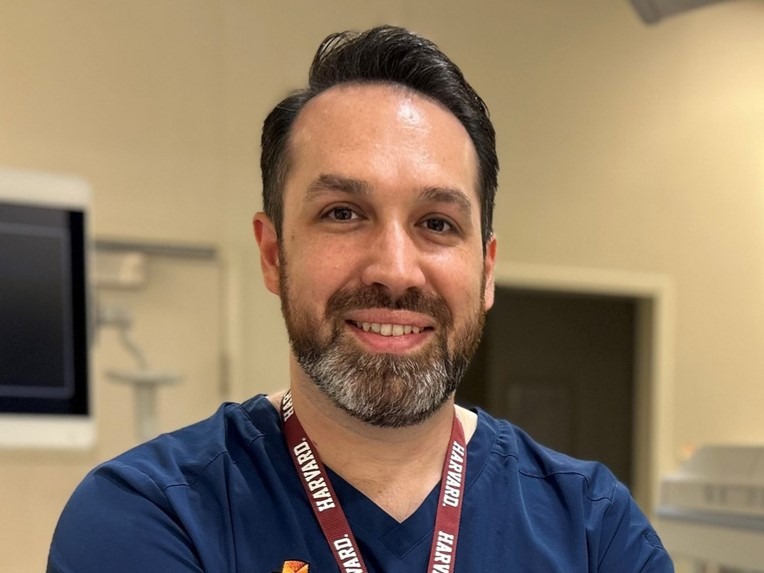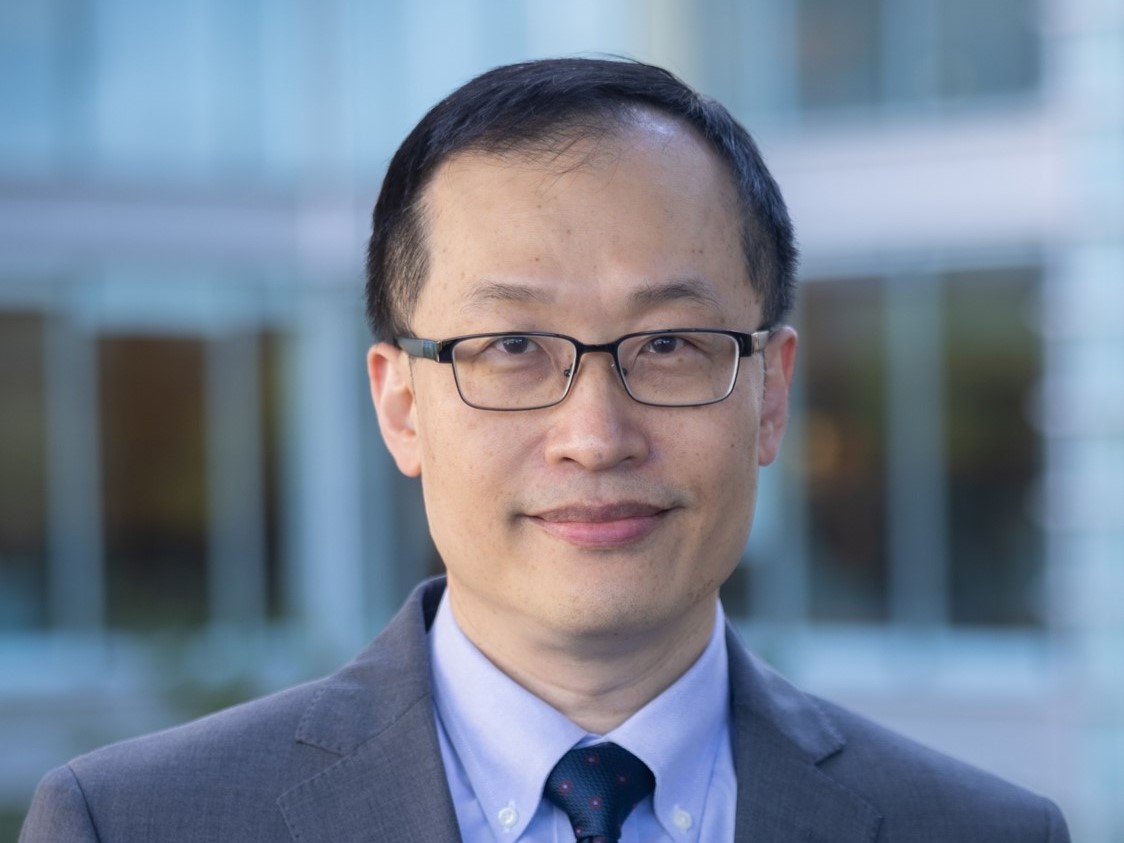CIRSE: Why is peer reviewing important for science, research, and advancing the field of IR?
Clements: Being involved in peer review is more than just reading papers; it is being involved in shaping the future of science. We all uphold values to further the betterment of IR, and I think that reviewing is the first place that people should start, well before writing their own papers. When you review, you must know (or research) the background landscape of the topic, critically appraise the study design, consider the analysis, assess the writing style, and then consider the topic amongst the values of CVIR and CIRSE. This means you are putting yourself right into the middle of being a scientist. Most importantly, it forces you to think critically, which, when done correctly, should be constructive for the author and improve their paper. Selfishly, it also helps you as the reviewer by ensuring that the mindset of critical appraisal remains there when you are writing your own papers later.
Yu: Peer review plays a vital role in maintaining integrity and advancing scientific knowledge. It is a crucial screening process, ensuring only solid research is published. Essentially, it’s a form of quality control. Expert reviewers, including myself, look closely at manuscripts to check their methods, data, and clarity. This process helps identify potential errors, biases, or misunderstandings that could mislead the scientific community and ultimately impact patient care. But it’s not just about pointing out flaws. Peer review opens a constructive conversation. It lets us give feedback that strengthens research, makes it clearer, and improves its overall impact. This collaboration contributes to better published works. In essence, peer review upholds scientific integrity, encourages good research, and ensures that findings are reliable and contribute meaningfully to our field of IR. It’s a key part of maintaining the high standards our readers and the wider scientific community expect.
CIRSE: What motivated you to become a reviewer for CVIR? What do you find most rewarding about reviewing?
Clements: I started reviewing several years ago when I decided that I wanted to be a clinician-scientist and not just a clinician. I believe that if you are submitting papers then you also have an obligation to contribute to reviewing. Otherwise, you are in no position to complain if your paper is taking a long time to get a decision! I really enjoy reading others’ work – it gets me thinking about study design and writing, both of which improve as you think about the way others approach developing scientific studies.
Yu: Early in my career, I recognized that becoming a reviewer would be valuable for professional development and continued learning. First, I sought to gain exposure to the type of leading research often published in CVIR. Second, I aimed to enhance my critical analysis skills. Observing experienced reviewers dissecting research papers, identifying strengths and weaknesses, and providing constructive feedback was a significant learning experience. Third, I saw it as an opportunity to refine my communication skills. Being able to convey critiques clearly and respectfully is an asset, benefiting not only the authors and editorial team but also fostering a deeper understanding of the research itself. Finally, I aimed to ensure my clinical practice remained informed by the latest evidence. Reviewing allows me to integrate new research findings, ultimately improving patient care. For me, this direct impact on patient care, the ability to bring the latest research into practice and see it benefit patients, is the most rewarding aspect of being a CVIR reviewer.
CIRSE: How has being a reviewer for CVIR contributed to your professional growth and expertise?
Clements: I have no doubt that reviewing was the biggest catalyst to improvements in my own writing style. In addition, it has opened several doors for me by allowing me to progress onto editorial boards, and luckily also to win reviewing acknowledgement awards. These seemingly small changes are actually major when considering how one might build an academic CV. Given reviews are usually in an area of your own expertise, I often find myself reading someone else’s work and then drifting into thoughts of my own patient cohort. Very often, reviewing a topic has planted a seed which has later grown into its own research study, often unrelated to the actual topic. I also use reviews to consider my current practice – can I use this to make my workday better for my patients or more efficient? Often the answer is yes.
Yu: Being a CVIR reviewer has been a key part of my professional growth. It’s broadened my knowledge, as CVIR consistently publishes quality research, keeps me up-to-date, and exposes me to new ideas and approaches. My critical analysis skills have significantly improved. Evaluating research methods, data, and conclusions has made me better at assessing evidence, which is helpful in both reviewing and my own work. My approach to reviewing has been influenced by what I’ve seen. Early on, I came across an insightful and well-written comment from one of the reviewers. That reviewer’s comments, critical but constructive, detailed, and including relevant references, showed me how much dedication and expertise go into good reviewing. It highlighted the importance of giving detailed, supportive feedback that improves research. Also, a review of a manuscript on interventional oncology, which was similar to my own work, had a direct impact on my research. The authors’ rigorous study design and innovative approaches provided a valuable learning experience, showing me areas for improvement in my own project. That was a memorable experience, as it directly impacted my own work and refined my research methods.
CIRSE: What advice would you give to someone considering becoming a reviewer for the first time?
Clements: Don’t think of reviewing as being too daunting. If you are a trained IR, then you have the required expertise to do this right now. First, I would suggest you reach out to a senior colleague for advice, ask them about reviewing, learn from them. Next, I would consider some formal reading on the topic. There are several online articles or websites that discuss what to do and how to think about critical appraisal. CIRSE has several resources on this, and CVIR often runs valuable reviewer workshops. Finally, I would reach out to the editors of CVIR and express your interest. When that first review comes through, use it as your opportunity to shine, and don’t be afraid to write your opinions – you are qualified to comment! Later, read the decision letter including the comments from the other reviewer(s) and learn from them too.
Yu: I would emphasize a few key aspects for those beginning their journey as reviewers. First, focus on reviewing within your area of expertise. This builds confidence and ensures you provide valuable feedback. Second, thoroughness and objectivity are essential. Carefully evaluate the methods, data, and conclusions, offering detailed and unbiased comments. Third, approach your critiques with a constructive and respectful mindset. Frame your feedback to aid authors in improving their work, providing specific suggestions while maintaining a professional tone. Additionally, learn from experienced reviewers, and attention to feedback from other reviewers and editors; it is a valuable way to improve your skills. Moreover, before formulating any comments, engage in a careful reading and reflection process. Personally, I read manuscripts at least three times. Following the first two readings, I dedicate a day or two to reflecting on the research’s value and scientific merit. This period of reflection contributes to a more comprehensive understanding and leads to more thoughtful reviews. Remember, peer review is an important service. By approaching it with dedication, you will not only contribute to the field but also enhance your professional growth.
CIRSE: How do you balance your reviewing responsibilities with your clinical and research work?
Clements: Reviews shouldn’t take you very long, so this balance is not difficult. I generally read an article through and then think about it when I am driving home from work. By the time I get home, I have appraised the article in my head and then it is just about putting down on paper a few paragraphs about what I think. If you keep your review broad, then it is not difficult to reply to the review request within 48 hours. It is not the role of the reviewer to re-write the entire paper, and these long-winded approaches add to the perceived difficulty of the review process, whilst usually delaying the decision outcome for the author. Every task has a relevant importance, and if you can see the value in reviewing, then just do it.
Yu: Balancing review responsibilities with my clinical and research work is challenging, but I approach it as an integrated process rather than separate compartments. I don’t see reviewing as an isolated activity; it directly enhances my clinical and research skills. Reviewing keeps me updated on the latest advancements, which often translates to improved patient care. Strategic time management is also key. I carve out dedicated time for reviewing, treating it as an essential part of my professional schedule. Furthermore, I utilize downtime, such as between cases or during travel, to catch up on reviews. I then align my review with my research interests. This synergy makes the process more efficient and impactful. Ultimately, my passion for the field and dedication to advancing patient care enable me to balance these responsibilities.
CIRSE: Why should other professionals in IR consider becoming reviewers for CIRSE’s journals?
Clements: This is a difficult question to answer, and I think the reality is that you should do what is right for you. Find your own motivation, whatever that may be. It may be that you want to better the science of IR, it may be that you want to improve your own writing, or you may want to improve your CV for a future job application. Whatever that motivation may be, harness it and then run with it. Trust me, after a while, you will realise that the process is rewarding in its own way.
Yu: One of the primary benefits of becoming a reviewer is the opportunity to stay at the forefront of the field. CIRSE journals are known for their publication of high-quality research, providing reviewers with early access to the newest techniques and advancements which can directly enhance their clinical practice. The peer-review process itself is a valuable tool for professional development. By evaluating research methodologies and data, reviewers can sharpen their ability to assess evidence, a skill that translates positively to their own professional work. Another key advantage is the chance to influence the direction of IR. Reviewing academic journals allows professionals to contribute to publishing impactful research, thereby shaping the field’s future. Beyond these professional gains, reviewing also fosters important communication skills. Providing constructive feedback to authors helps develop skills essential for collaboration and education. Finally, serving as a reviewer for a respected journal like CVIR elevates professional standing and facilitates connections with other experts in the field. Participation in CIRSE journal reviews is beneficial for interventional radiologists to advance their careers and contribute meaningfully to the specialty.


